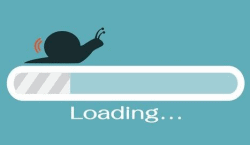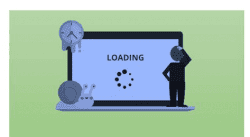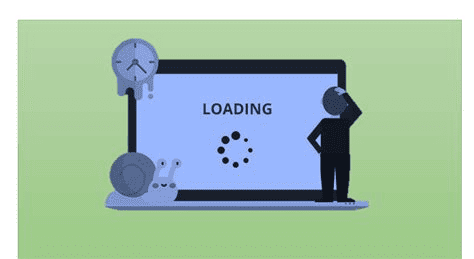If you are running an eCommerce business or a blog, you probably know that a slow loading website can negatively affect your business. It is possible to improve the speed of your site without sacrificing functionality, but it is important to optimize the site for the fastest possible speed. This article will discuss the factors that make a website slow. It will also touch on the best ways to make your site load faster.
Search engine optimization is a herculean task for any brand. If your site takes too long to load, Google will automatically slide it down the page of search results. Users who do find your site will simply press the back button and move on to a competitor’s website. And in this tough market, you don’t want to lose potential sales by losing customer loyalty. The fastest way to boost your conversion rate is to make your website faster and more responsive.

One of the most important factors for any business is search engine optimization. With a low loading time, Google will push your page down in the rankings. This means that customers will leave your website and look elsewhere. And even worse, a slow website will reduce your customer satisfaction. In fact, Kissmetrics has shown that 40% of users will leave your site if it takes more than three seconds to load. With so much at stake, a slow-loading website can negatively impact your business. For help and advice with Web Design Yorkshire, visit https://www.etempa.co.uk/web-design
Slow-loading websites deter potential customers. While your visitors may be interested in your products, they might not be patient enough to purchase them. In addition, a slow-loading website will drive away potential customers. So, if you want to increase your revenue, make your website fast. It can boost your revenue and improve your bottom line.
The disadvantages of a slow-loading website are irretrievable. If your site takes too long to load, users will simply give up. Furthermore, they will not be able to return to your site if they can’t find what they’re looking for. This isn’t a good outcome for your business. You must be sure that you invest time in optimizing your website for speed.

Some of the reasons for slow-loading include images that are not optimised. High resolution images take up an awful lot of bandwidth and the image format might be causing problems as well. Try to use JPEG images which are generally smaller. Caching is a process that significantly improves the performance of a website so if you are not caching, you should definitely ask a professional for help in setting this up.
Too many adverts on a site can also make it load more slowly. Whilst ads are a great income stream for heavily visited sites, the addition of extra HTTP requests requires additional processing time and slow down performance, especially if they are media rich adverts.

